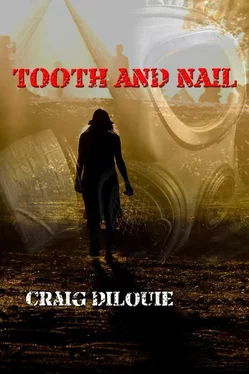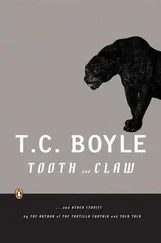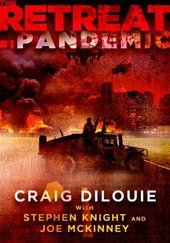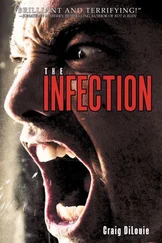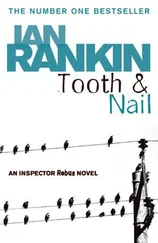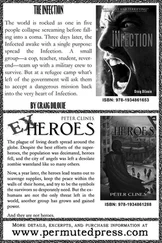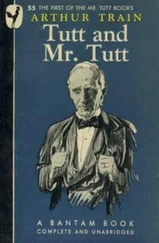No, the LT tells himself. The Captain will not anchor Alpha’s fate to Bravo’s by waiting around in a hostile area, especially with Bravo having so much ground to cover, but instead go the other way, force marching his command to take advantage of the failing light before night fell. So he will place his boys in a formation favorable to mobile defense and move hard and fast. But how fast can he push a company of eighty men on these streets, fighting for every block?
Not very, apparently. Alpha stepped off over an hour and a half ago and is still at least a mile south of the rendezvous point.
At least he has the curfew in his favor, Bowman thinks. Right now, everybody on the street is hostile and Alpha, Bravo and Delta are cleared hot against anything that moves.
Knight glances up the sky. “He’s lost the light,” he says.
Bowman grunts, glancing at his RTO.
Sherman says, “War Hammer is reporting heavy casualties. . . . Some dead, most bitten. . . . Quarantine is turning down his request for a medevac. . . .”
Bowman and Knight glance at each other. When Charlie’s sister companies finally show up, they are going to have to quarantine or otherwise do something with soldiers who were bitten. But this will be Lyons’ decision to make, not Bowman’s.
Bowman tries to picture what is happening at Alpha’s position. Lyons’ boys are tired and probably running low on ammo after killing who knows how many Mad Dogs. Some of the soldiers are dead and have to be carried, while a larger number have been bitten and surely know they will become Mad Dogs themselves within a few hours.
Will these soldiers continue fighting for Lyons even though they know their bites are death sentences? Will some of them turn their weapons on themselves? Or will they simply wander off?
What would you do if you had a rifle in your hands in a lawless city and only had a few hours to live?
“War Hammer is telling Warmonger to pick up the pace,” Sherman says.
Bowman nods.
Small arms fire erupts in the west, quickly turns into a steady volume of fire. It is Delta Company, attempting to push its way through fresh resistance.
Lieutenant Bishop comes up from behind.
“What have you got?” he says, taking out his binoculars.
“See for yourself,” Bowman says without turning around. He is annoyed with the officer and is going to have to get him squared away. It is bad enough having Stephen Knight around. The man is clearly broken after what happened to his platoon. But Bishop is mouthing off to the NCOs like a politician, always saying what they should be doing instead of simply accepting command decisions and making the best of them.
Loud gunfire explodes to the south, close to their position. The shooting has a terrible urgency to it this time, making Bowman’s heart pound. A series of flashes like lightning illuminate the outlines of nearby buildings, followed by ear-splitting booms.
He blinks and remembers visiting his uncle’s ranch on July Fourth when he was a kid. At night, stuffed on hot dogs and birch beer, he and his cousins retreated into the pastures, alive with fireflies and the singing of the dog day cicadas, and watched the fireworks light up the sky and explode with terrifying bangs.
Knock it off, he tells himself. He has done well armoring his mind against the destruction of the past as well as the terrifying idea of future extinction. His only weakness is the escape offered by pleasant memories of home. These memories helped get him through Iraq but here, they will only slow him down and make him weak when he needs to stay sharp and focused. There is a time and place for pain. . . .
The Way of the Warrior and all that. The macho stuff the lifers talk about. It is a philosophy that tells you to embrace pain so that it makes you stronger. Well, that certainly applies here and now. He wants his feelings cauterized. In his case, there is nothing macho about it. He simply believes that a lot of his men will die if he does not stay strong, uncaring, unfeeling.
The shooting suddenly cascades into a deafening, crackling roar punctuated by flashes, pops and booms he can feel deep in his chest.
“That’s FPF,” Knight murmurs.
Final protective fire. A defensive tactic. When it is put into play, the unit fires every weapon it has to stop the enemy from advancing and save itself from being overrun. It is the option of last resort. The meaning is obvious: Alpha is in trouble.
Bowman is amazed at the number of Mad Dogs. In the past five hours, they must have doubled in population. The easy explanation is they overran the hospitals and infected thousands of people in their beds, along with a full night and day of infecting anybody who ventured outside their homes. There must be tens of thousands at this point, possibly even hundreds of thousands, running towards the sounds of the gunfire from all over the city. The average rifleman carries more than two hundred rounds. If every bullet for each of their weapons found its mark, a single company could theoretically kill twenty thousand of the enemy.
Would even that be enough?
He reminds himself that First Squad alone, burning through almost all of its ammo, killed hundreds of Mad Dogs in less than fifteen minutes. Alpha can win this fight.
Kemper, Vaughan and Sherman join the officers at the parapet, their eyes gleaming.
Eleventh Cavalry air units are buzzing over the battle, weaving around the skyscrapers. An Apache helicopter suddenly buzzes low and fires a pair of Hellfire missiles at the street.
Kemper flinches and says, “Christ, that’s close.”
A second helicopter drops a TOW missile, guides it to its target, then veers off like an angry hornet. Fireballs expand and rise above distant buildings. Heat and light.
Kemper adds, “Unless. . . .” But says nothing more.
Bowman nods. Unless the friendly units are serving a dual purpose on the march. Either they make it to the rendezvous and consolidate and therefore become an effective player in this game, or serve as bait to lure the enemy into a killing zone for the Cavalry. General Kirkland, leader of the Sixth ID, may have issued a standing order to his air units to destroy concentrations of Mad Dogs regardless of whether there are friendly units near the target.
This does not piss him off. Bowman understands its logic. Kirkland is desperate and flailing and fighting to win to save a dying country, staking everything on this one night. Bowman realizes that he would do the same thing in the General’s shoes. It is basic utilitarianism: The needs of the many outweigh the needs of the few. Military decisions in war are often based on such ethics.
Confirming Kemper’s suspicion, Sherman looks up from the radio and says, “They’re not calling in those air attacks. They’ve got men down.”
“Sir, I. . . .” Vaughan says, struggling for words.
“We need to get out there right now,” Lewis says, finishing for him.
“We will follow our orders and stay in position,” Bowman says, looking through his binoculars.
“Sir,” Lewis pleads. “Let me take out Second Squad.”
Bowman glares at him. “That’s a no go, Sergeant. Are we clear?”
“Crystal,” Lewis says tersely.
Bowman sounds confident, but is actually feeling anything but. In fact, he is itching to get Charlie into the game. Could this be a decisive battle? he wonders. Is Lewis right that we should spread out and shoot down every Mad Dog as early as possible before it becomes too late? Should I lead my men out there to support Alpha or Delta, and perhaps put an end to this once and for all?
Or is it already too late—for Alpha, for Delta, for all of us?
It all depends on the infection rate, Bowman knows. Manhattan has more than one and a half million people living on it. If one percent of them are now infected, that would be about sixteen thousand people. If five percent, it would be eighty thousand.
Читать дальше
